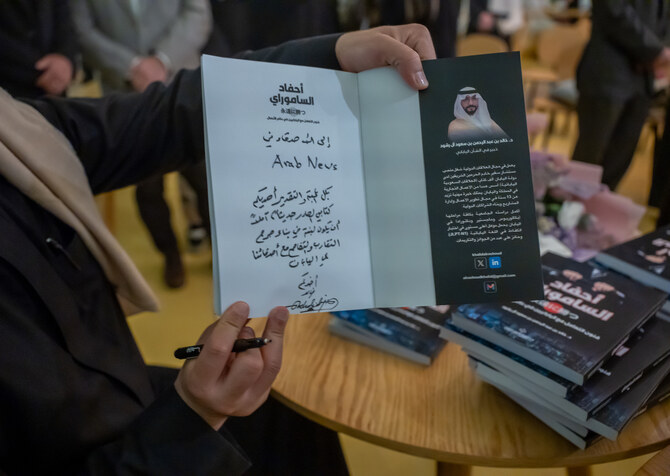RIYADH: As the Kingdom celebrates 70 years of diplomatic relations with Japan, dignitaries from the two nations came together in Riyadh recently for the launch of a new book that provides a deep insight into the world of Japanese commerce.
Titled “Descendants of the Samurai,” author Dr. Khalid Al-Rashoud told Arab News his work “provides insights into cultural differences, communication and negotiation styles, and building effective strategies for achieving professional success.”
The book, he said, “navigates business relations with the Japanese counterparts and provides fresh insights into the cultural norms, the stars of communications and successful strategic techniques for negotiations, holding meetings, resolving conflicts.”
Al-Rashoud, who has a doctorate in transformation management and development engineering from the Tokyo Institute of Technology and once worked as an adviser at the Saudi Embassy in Japan, said the book would help people to “understand the unique character of Japanese people and Japanese culture, which is tremendously rich.”
“(Japan) has a long-standing history that is full of knowledge, full of philosophy, full of science that we need to utilize … (but) often the language barriers and also the geographic variety, hinder its reach.”
Al-Rashoud, who is also the author of “Saudi-Japanese Relations,” said his latest work was mostly aimed at business people, but would also benefit government officials and those working at nongovernmental organizations or as researchers or students.
He said he believed it could help bring Japan closer to the Kingdom and the Arab world in general.
Among the guests at the launch was Japan’s Ambassador to Saudi Arabia Yasunari Morino.
He told Arab News: “Japan and Saudi Arabia enjoy long-standing friendship and great relations in all areas including the economic and cultural. To further deepen the relationship, mutual understanding between the people is extremely important.
“So this work … is a great contribution to further deepening mutual understanding between the two people and deepening friendship between the two countries.”




























